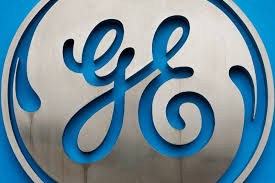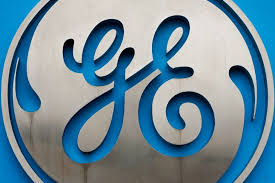
On the way to creating an energy powerhouse that would give GE a cost-effective way to play any recovery in the industry, General Electric Co. is nearing a roughly $30 billion deal to combine its oil-and-gas business with Baker Highes Inc.
Sources reportedly told media that the new entity would have publicly traded shares and be majority-owned and controlled by GE and the company plans to contribute its oil-and-gas business and some cash to it.
However the details of the exact terms of the deal were not clear as yet.
The new entity could cut costs to better compete with rivals such as Schlumberger Ltd. to provide equipment and services to oil rigs and wells as the combination would create a company with more than $25 billion in revenue. Without having to pay for a full acquisition of Baker Hughes, the deal would enable GE to benefit from an expected recovery in the industry. Benefits from cost and other synergies from putting the two businesses together would also be available to the companies and their shareholders.
Signs of hope are being seen by GE and some of its rivals in the oil-and-gas business after two brutal years. Crude prices have rebounded to around $50 recently after they had plunged to $30 a barrel this year from more than $100 in 2014.
Noting that U.S. rig and well counts remained down 50% from the previous year but had ticked upward in the previous three months, GE provided glimmers of improvement from the third quarter. The company said that still orders for services were down across all of GE’s oil business.
GE said that operating profit in the unit will be down by 30% for the year even as the company, in recent public comments, has said that it is still committed to the oil and gas unit for the long term. GE is cutting more than $1 billion in costs out of the company over two years.
GE’s shares ended 2.1% higher at $29.22 on Friday, while Baker Hughes shot up 8.4% to close at $59.12. This shows that the companies’ shares have reacted well to the possibility of a deal.
After Qualcomm Inc. agreed to buy NXP Semiconductors NV for $39 billion and AT&T Inc. agreed to buy Time Warner Inc. for $85 billion, the deal would be the latest blockbuster tie-up to be announced in recent days. Including a potential combination of business-telephone companies Century Link Inc. and Level 3 Communications Inc. are among the other large deals that are in the works.
Coming less than two weeks before the presidential election in the U.S., the recent speedup in what has already been a strong year for mergers and acquisitions defies conventional wisdom. Bankers say that how strong the imperative to consolidate across industries is, is exhibited by the fact that companies are inking mergers at a breakneck pace without knowing who the next president will be.
Amid a tough environment for deals in Washington, the anti-trust regulators this year rejected the last merger agreement Baker Hughes entered into—a $35 billion proposed union with Halliburton Co. and therefore there is no guarantee a GE-Baker Hughes deal will be completed.
(Source:www.wsj.com)
Sources reportedly told media that the new entity would have publicly traded shares and be majority-owned and controlled by GE and the company plans to contribute its oil-and-gas business and some cash to it.
However the details of the exact terms of the deal were not clear as yet.
The new entity could cut costs to better compete with rivals such as Schlumberger Ltd. to provide equipment and services to oil rigs and wells as the combination would create a company with more than $25 billion in revenue. Without having to pay for a full acquisition of Baker Hughes, the deal would enable GE to benefit from an expected recovery in the industry. Benefits from cost and other synergies from putting the two businesses together would also be available to the companies and their shareholders.
Signs of hope are being seen by GE and some of its rivals in the oil-and-gas business after two brutal years. Crude prices have rebounded to around $50 recently after they had plunged to $30 a barrel this year from more than $100 in 2014.
Noting that U.S. rig and well counts remained down 50% from the previous year but had ticked upward in the previous three months, GE provided glimmers of improvement from the third quarter. The company said that still orders for services were down across all of GE’s oil business.
GE said that operating profit in the unit will be down by 30% for the year even as the company, in recent public comments, has said that it is still committed to the oil and gas unit for the long term. GE is cutting more than $1 billion in costs out of the company over two years.
GE’s shares ended 2.1% higher at $29.22 on Friday, while Baker Hughes shot up 8.4% to close at $59.12. This shows that the companies’ shares have reacted well to the possibility of a deal.
After Qualcomm Inc. agreed to buy NXP Semiconductors NV for $39 billion and AT&T Inc. agreed to buy Time Warner Inc. for $85 billion, the deal would be the latest blockbuster tie-up to be announced in recent days. Including a potential combination of business-telephone companies Century Link Inc. and Level 3 Communications Inc. are among the other large deals that are in the works.
Coming less than two weeks before the presidential election in the U.S., the recent speedup in what has already been a strong year for mergers and acquisitions defies conventional wisdom. Bankers say that how strong the imperative to consolidate across industries is, is exhibited by the fact that companies are inking mergers at a breakneck pace without knowing who the next president will be.
Amid a tough environment for deals in Washington, the anti-trust regulators this year rejected the last merger agreement Baker Hughes entered into—a $35 billion proposed union with Halliburton Co. and therefore there is no guarantee a GE-Baker Hughes deal will be completed.
(Source:www.wsj.com)





